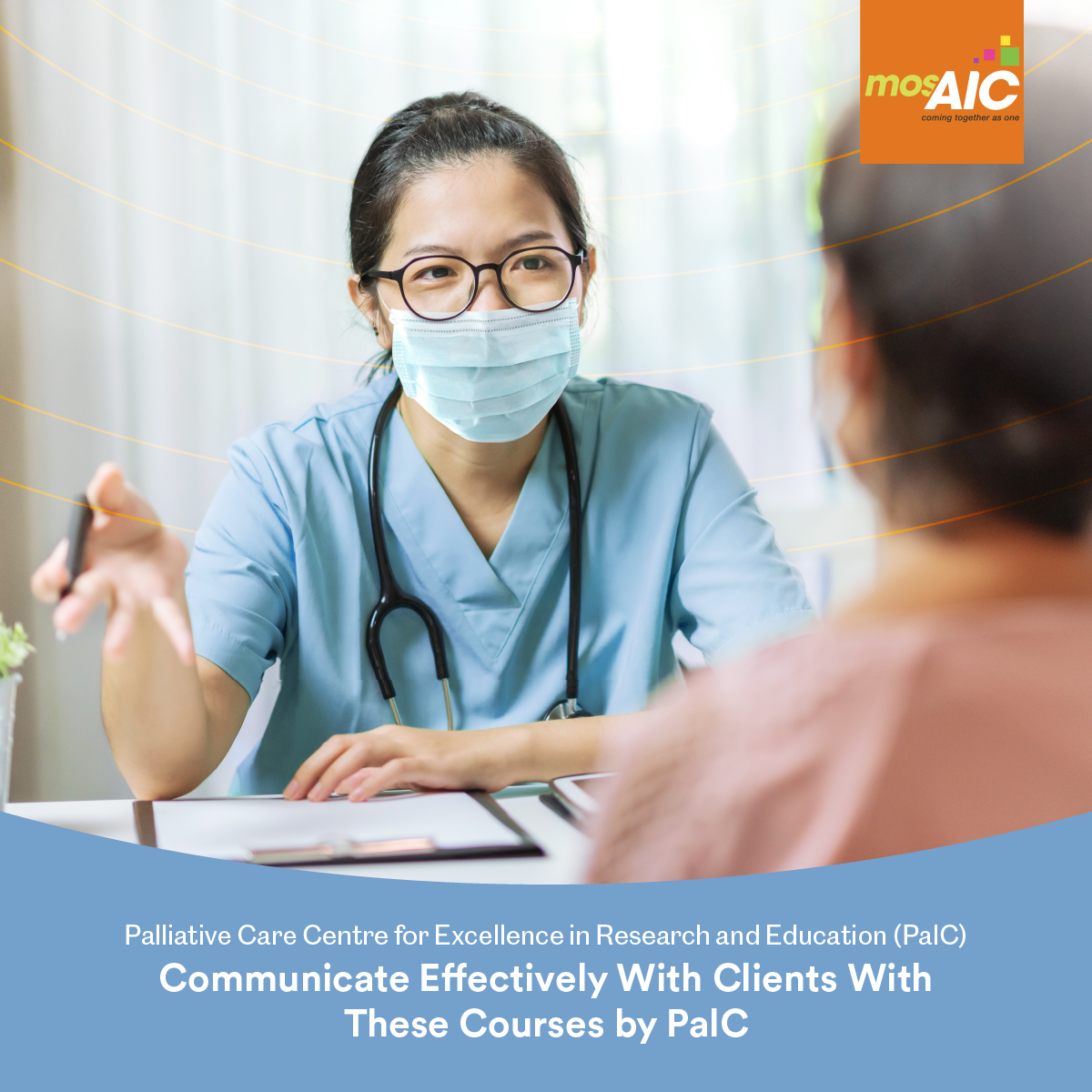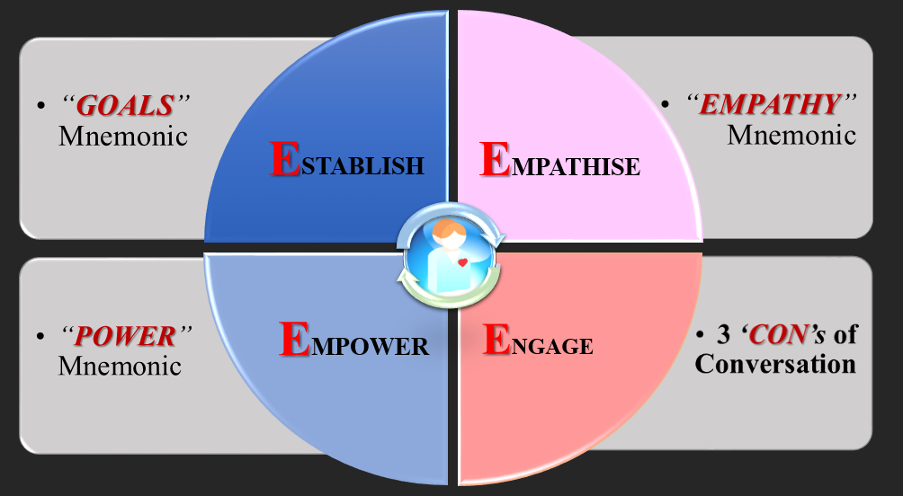Communicate Effectively With Clients With These Courses by PalC

Palliative care training is important for any Community Care professional caring for clients who are approaching their end of life. Through such training, you can help provide a good and fulfilling quality of life for your clients. These training courses entail various aspects, from clinical to communication skills. After all, it’s important for Community Care professionals to be able to communicate effectively with not only their clients, but also the clients’ next-of-kin and fellow healthcare professionals.
The Importance Of Communicating Effectively With Patients
Effective communication, although often overlooked by Community Care professionals, is essential in building trust and rapport with your clients and their families, within a therapeutic relationship.
The recognition of the importance of communication skills training began in the 1980s with the evolution of the patient-doctor relationship from a paternalistic to a shared decision-making model. Communication skills training was promptly incorporated into the undergraduate medical curriculum in the UK and the US and today, it is a core component in the curriculum of health professional education throughout the world.
Communication is more than just the sharing of words on a cognitive level; as important is the art of listening, not just to the words being said, but also the emotion underpinning the words.
Not sure where to look for courses that will equip you with such skills? Explore The Palliative Care Centre for Excellence in Research and Education (PalC), a pioneer in palliative care research and education.
How PalC Can Help
The following courses from PalC that are available via AIC’s Learning Network help you to hone your communication skills on top of the clinical modules, to better care for clients who are approaching their end of life.
Essentials of Thanatology: Death, Dying and Bereavement (Intermediate) - 16 hours
This course focuses on expanding participants' knowledge and skills to develop the emotional competence required for working with clients approaching their end-of-life and bereaved individuals. It deals with topics of loss, grief and bereavement, as well as assessment and intervention methods needed in palliative care.
CLEAR Course on End of Life Care (Communication, Law, Ethics And Professional Regulations) – 8 hours
This course aims to provide healthcare professionals with an understanding of the application of ethical principles, in order to make decisions in the best interest of patients and their families. Communication techniques to use are also introduced, to facilitate clear communication of care issues with patients and their family caregivers.
Certificate in Community Palliative Care: Psychosocial Care - 26 hours
Participants will be equipped with knowledge on various symptoms and illnesses, as well as their psychological impact on clients. They will also be taught about grief management, and how to involve caregivers and family members as care partners. At the end of the course, participants should be able to explain about care management to the caregivers and family members.
Certificate in General Basic Palliative Care for AHPs (Intermediate) – 28 hours
Participants will learn about effective communication skills, as well as identify psychosocial, emotional and spiritual issues in palliative care. They will also be trained in articulating the importance of Advance Care Planning to clients and caregivers. Participants will be taught how to care for the client in their last hours, and support caregivers and family members through grief and bereavement.
Certificate in Basic Palliative Care for RNs (Intermediate) – 56 hours
Similar to the above course, this course will teach Registered Nurses how to convey the importance of Advance Care Planning to clients and caregivers. They will also be taught how to communicate effectively with their clients, even in their last hours, and provide support to bereaved caregivers and family members.
Communication Skills For Palliative Care Professionals
Upon attending the courses relating to effective communication, PalC is introducing a handbook for healthcare professionals. The Bedside Communication Handbook is designed to assist healthcare professionals across all disciplines when speaking with patients and families. Spanning across the spectrum of care, the handbook discusses how professionals should speak with patients about chronic care and antibiotic use, to planning about future care and end of life goals. This includes a featured communication technique, the 4 “E” Framework (Establish, Empathise, Empower and Engage), which presents a systematic approach to effective clinical communication.

The EMPATHISE and ENGAGE Quadrants in the 4 “E” framework establishes rapport and helps us understand patients better. Skills in the communication of medical information and empowerment of patients in medical decision-making is delineated in the EMPOWER and ESTABLISH Quadrants.
In an effort to further illustrate the components of good clinical communication encounters in various scenarios, the Palliative ICU Lead in Tan Tock Seng Hospital, Dr Poi Choo Hwee shares a step-by-step analysis of how she would apply the framework to her encounters with patients:
- Build rapport and trust using the elements of the “Empathise” and “Engage” quadrants.
- Empower family or the surrogate decision-maker through a shared decision-making process, using the elements in the “Empower” quadrant.
- Plan the process of withdrawal with the family, with special considerations of the various communication points regarding the withdrawal of mechanical ventilation.
Good communication will impact a patient's outcome and the healthcare professional's mental health in the long run. In order to provide healthcare professionals with effective, compassionate communication skills, it is imperative that they are equipped with the necessary training.
Interested to learn more about PalC’s courses on Communication?
Access the AIC Learning Management System (LMS) to embark on your professional development. Filter to “The Palliative Care Centre for Excellence in Research and Education (PalC) as the Learning Institute of your choice to find out more about the courses offered.
For other enquiries, please contact Palliative Care Centre for Excellence in Research and Education at 6500 7269 or via email at enquiries@palc.org.sg.
Do check out the details for courses at the AIC’s LMS Marketplace .
